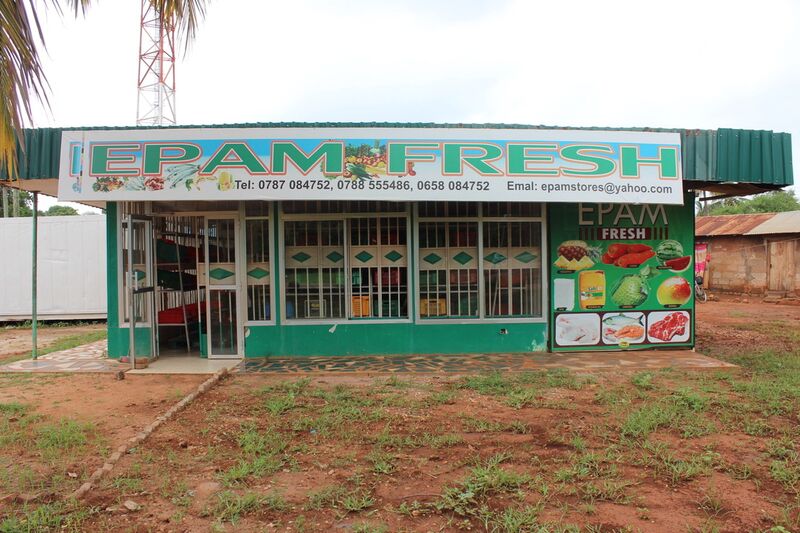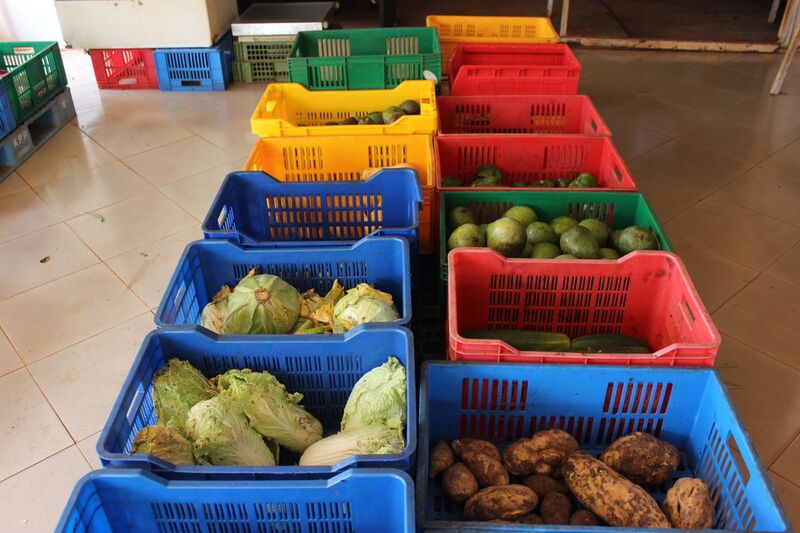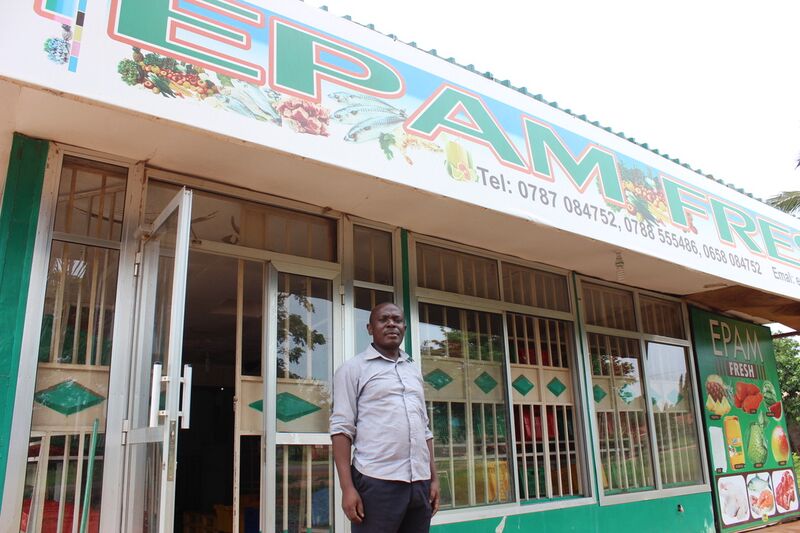The Aga Khan Foundation is supporting businesses, like that of Pascal Mohimbo, in rural Tanzania to spark local economic development and, with it, an increase in farmers incomes.
Once an accountant in the oil and gas sector in Dar es Salaam, Pascal moved to Mtwara in southern Tanzania in 2008 and opened Epam Fresh. Sensing an opportunity to cater to the growing middle class in Mtwara, he founded Epam to supply fresh vegetables to local families and businesses.
“Many of these products initially came to Mtwara from Dar es Salaam and Morogoro,” Pascal tells us. However, due to the long distance between producer to buyer this resulted in higher costs and a high spoilage rate, around 25-30%.

As part of its programme to help develop value chains and increase incomes for farmers in rural Tanzania, the Aga Khan Foundation (AKF) engaged in a partnership with Pascal, to connect his business with local farmers to increase production and trade of locally sourced vegetables. AKF started by convincing around 20 farmers to begin cultivating new crops to meet the needs of Pascal’s customers and provided the technical know-how of how to cultivate these crops. In exchange, Pascal could offer local farmers a guaranteed demand for their products. This arrangement has enabled Pascal to achieve “zero spoilage” and for the farmers to have a steady income for their crops; a win-win. “If we work together to change society, to educate, to promote, I can see good results in the long term,” Pascal tells us.
Supported by AKF, Pascal has recently tested a variety of new crops in Mtwara to meet the growing needs of his customers. He notes that he and his farmer partners are still in a learning phase, “as farmers focus on crop diversification,” he says, “we’re continuing to determine which crops will succeed and which will fail.”

Whist focused on his Epam Fresh store, Pascal is also acutely aware of the importance of spending time with farmers in their fields. He recently travelled to Tandahimba and Namahonga, to speak with farmers and to stress the importance of introducing new crops to the region. Pascal is quick to stress that he is not simply working with farmers for Epam’s benefit. Instead, he sees advocating for new crops as critical to ensuring that farmers and their families also enjoy a healthy and nutritious diet.
It is said that farming is a profession of hope. “There is a need to illustrate that, yes, the new products you are growing will actually be sold. We need to create demand to inspire belief”, Pascal tell us. Fulfilling many roles in his work, it is important to Pascal that he inspires hope.
Pascal is a man on a mission: to grow his business, to help farmers thrive and to establish healthier communities. His partnership with AKF and local farmers has been instrumental in creating shared value for all the stakeholders involved. A businessman or a community leader? Pascal’s story provides proof that one can indeed be both.

“Are you a businessman or a community leader?” I ask Pascal. “I’m a businessman who believes that one must invest their success back into their community,” he replies.
Support for Pascal is provided under the Food Value Chain Development Project (Kilimo ni Biashara), a 3-year project under the GIZ programme E4D/SOGA and financed by UKAID, Norad, LNG Plant Project, and the German Government. The project creates and facilitates economic opportunities for smallholder farmers and businesses to produce, process, and provide food for external markets, with a focus on the natural resource industry.





